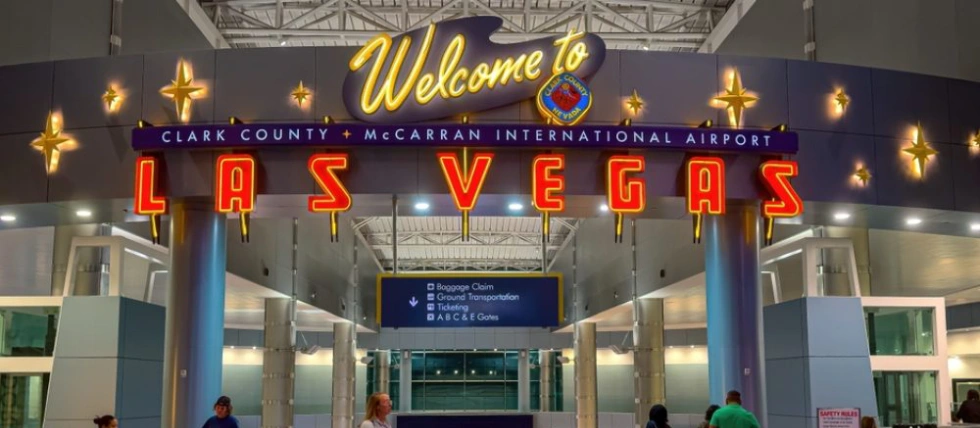Analyst Predicts Las Vegas Recovery in 2026 After Prolonged Softness
Truist Securities analyst Barry Jonas says Las Vegas will continue to struggle through much of 2025 but is likely to stage a meaningful recovery in 2026.

In an October 21 investor note, Jonas described an ongoing period of weakness for the Las Vegas Strip that is expected to persist into the third quarter, with the fourth quarter of 2025 possibly improving but still muted ahead of a stronger 2026. "We’re starting to see the light at the end of the tunnel as we move past the well-known soft summer – likely driven by a combination of low-end weakness, softer international visitation, and more normal summer seasonality", he wrote.
Jonas visited the Strip for the Global Gaming Expo and reported broadly upbeat conversations among operators about 2026 prospects, even if many expect only a flattish finish to 2025. He said Strip executives were largely aligned in anticipating "a record year for group business" and quoted Las Vegas Convention & Visitors Authority chief executive Steven Hill saying he expects "exceptionally strong" tourism through the end of 2026.
Despite that optimism, Truist’s research flagged mixed near-term data: October room rates were roughly 5% below 2024 levels, while November showed a modest 3% year-over-year improvement – partly tied to the Las Vegas Grand Prix – and December leisure-channel rates were down around 10%. Jonas noted operators are pointing to group bookings as the likely catalyst for any meaningful rate inflection, even as leisure demand softens.
Jonas kept Buy ratings on Caesars Entertainment and MGM Resorts, citing what he called undemanding valuations and emerging contributions from their digital divisions. He warned Caesars could see third-quarter results deteriorate further, while also flagging that some Strip operators will need to sharpen value propositions to attract a full range of customers. "Most operators believe that ‘The Vegas is expensive’ narrative is somewhat overdone, but we think Strip operators at a minimum will be more cognizant of delivering value to all ranges of customers", he wrote.
Regional Markets, REITs and B2B Opportunities
Beyond the Strip, Jonas highlighted healthier trends across regional markets and locals-facing casinos. He singled out Station Casinos and Boyd Gaming as outperformers in certain markets, praising Station’s projects and Boyd’s balance sheet. "We continue to favor Boyd with positive regional trends adding to locals' health amidst a best-in-class balance sheet", he observed, while noting Golden Entertainment has struggled where strip softness and a weak tavern business have undercut otherwise constructive local dynamics.
Jonas also identified upside in real estate investment trusts (REITs) and business-to-business (B2B) digital providers. He argued that REITs such as VICI Properties and Gaming & Leisure Properties could benefit if operators pursue asset sales to deleverage and refocus capital allocation. "Should deleveraging occur, REITs stand to benefit", Jonas wrote, pointing to recent asset transactions and the potential for more disposals as corporate strategies evolve.
On the B2B front, the analyst said prediction-market concerns have extended into vendor ecosystems but suggested that nimble suppliers can capture demand from new entrants. "In the current environment, we don’t expect many earnings surprises, but continue to favor companies with best-in-class assets", Jonas added, naming Monarch Casinos, Churchill Downs and Station Casinos as examples of firms with resilient franchises. He highlighted Churchill Downs’ historical horse racing and HHR parlor performance and praised Monarch for outpacing markets in Reno and Black Hawk.
Jonas flagged several calendar effects that could lift Nevada rates in the coming seasons: the return of the ConAgg Expo in January, the scheduled return of the International Builders Show to Las Vegas for 2027–39, and marquee events such as the Grand Prix. He also speculated that an improving capital markets backdrop might spur M&A activity, with potential benefits for buyers, sellers and capital providers alike.
More Finance News
Key Metrics to Validate the 2026 Recovery Thesis
Investors will be watching key indicators that could validate Jonas’ 2026 rebound thesis: group booking pace and conversion, international visitation trends, and the trajectory of strip room rates into spring. Equally important will be balance-sheet moves by operators – asset sales, deleveraging or strategic transactions involving REIT partners – and whether digital gaming revenues from Caesars and MGM meaningfully offset softness on the floor.
For now, market participants appear to be bracing for more modest near-term results while positioning for a potential recovery next year. As Jonas summed up: "We wonder if an improving capital market environment could lead to more M&A as companies start pondering if selling off less desirable properties could be multiple additive and alternative uses of capital".
RELATED TOPICS: Finance
Most Read
Must Read
 Interviews
Interviews
Exclusive Interview: Levon Nikoghosyan Shares AffPapa Winning Formula for Successful iGaming Events
Dec 03, 2025 Interviews
Interviews









Review this New Post
Leave a Comment
User Comments
Comments for Analyst Predicts Las Vegas Recovery in 2026 After Prolonged Softness